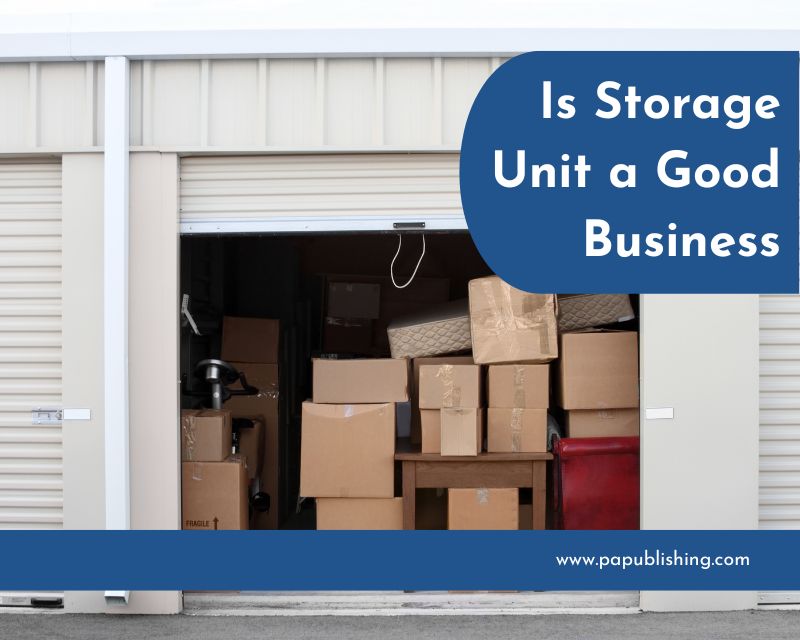Is Storage Unit Business A Good Idea?
Investing in a storage unit business can be a great business venture if you’re looking to make a significant profit. They may start out small, but new businesses in this industry have a high likelihood of success, so there’s little to no doubt yours will also thrive.
If you’re still unsure about the business idea, this article will give you all the information you need to make an informed decision.
What Exactly Is A Storage Unit Business?
Sometimes people and businesses have stuff that they don’t want to throw away but don’t have extra room to store them for later use. A storage unit business is a company that provides rooms to these people and businesses where they can store their belongings and keep them safe.
But how do storage units make money? Well, the primary source of income for you as the business owner will be the unit’s rental fees that clients will pay based on its size and features. So, the more units you have to rent out, the more money you’ll make.
Pros And Cons Of Owning Storage Units
Owning storage units for your business will come with the following pros and cons:
Pros of Storage Unit Business
Least Hassle
Running a storage unit business doesn’t require a lot of work since the customers will be responsible for loading and unloading their items. The most intimidating part of the business will be the initial process of buying a storage facility. Other than that, you’ll also have to work on attracting and retaining customers to keep the business running.
Higher Profit Margin
You’ll be able to enjoy a steady and reliable income stream every month for as long as your customers use your unit for storage. In fact, if you’re wondering how profitable is a storage unit business, you’ll be pleased to know that the profit margin is usually around 41%.
Low Maintenance Cost
Operating a storage unit business requires relatively low maintenance and on-site staff compared to other businesses. Apart from basic maintenance, safety, and pest control measures, the business gives you little to look after and is mostly easy to manage.
Bigger Customer Base
Unlike some businesses that target specific demographics, a storage facility business can cater to a wide range of customers from different industries. This includes individuals, schools, hospitals, corporate businesses, etc. Catering to so many different industries and businesses ensures a consistent stream of clientele and income.
Cons of Storage Unit Business
Higher Initial Investment
Setting up the business will require a significant amount of investment in several key areas. This covers purchasing the property, constructing the storage facility, and installing security systems. Luckily, depending on the no. of storage units, their size, location, etc, the investment can be adjusted according to your budget. To do that, you’ll need to have a solid and well-thought business plan.
More Competition Nowadays
We discussed that the storage facility business is very profitable. Though this is a major pro, it also means you’ll have to deal with great competition. In fact, with the incredible recent growth the storage unit business has seen in recent years, you’ll have to come up with a creative marketing strategy if you want to stand out.
Collection Issues
In the business, you’ll sometimes have to deal with difficult customers failing to pay their rent. In that case, you’ll have to constantly demand payment and take strict measures if they fail to pay their dues. This means you’ll have to hassle with legal proceedings, vacating the storage units, etc.
Bottom Line
An investment in a storage unit business can indeed be promising and profitable. This simple business venture requires minimal labor and low maintenance, making it easier to manage. It also has a wide customer base from which you can make a steady stream of income.
That being said, your business’ success also comes with many challenges and hurdles as well. You might encounter obstacles like heavy competition in the market, difficult customers, and initial financial burdens.

